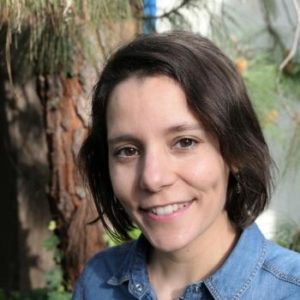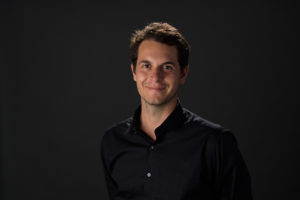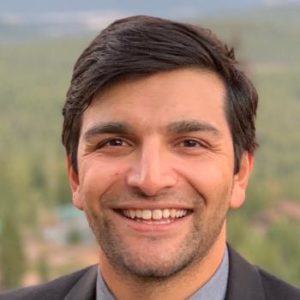
Special PHIND Seminar presented by Dr. Ann Hsing
Title: Stanford WELL for Life Study: A Global Study of Precision Well-being
Speaker: Ann Hsing, PhD
Professor of Medicine
Stanford Prevention Research Center
Stanford Cancer Institute
Department of Health Policy and Research (Epidemiology), by courtesy
Bio: Dr. Ann Hsing is a professor of medicine at Stanford University and co-leader of the population Sciences Program at Stanford Cancer Institute. She is also a professor at Stanford Prevention Research Center and in the Department of Health Research and Policy (Epidemiology, by courtesy). In addition, Dr. Hsing is a faculty fellow for the Center for Innovation in Global Health as well as the Center for Population Health Sciences (PHS) at Stanford Medicine, where she chairs the Pacific Rim Alliance for Population Health, a new multidisciplinary initiative aimed at improving health in the Pacific Rim. Prior to joining Stanford Medicine, Dr. Hsing served as Chief Scientific Officer at the Cancer Prevention Institute of California, a role she assumed after retiring from her post as a tenured intramural investigator at the National Cancer Institute where she served for 23 years. Dr. Hsing received her PhD in epidemiology from the Johns Hopkins University and her master’s degree in biostatistics from the University of California at Los Angeles. At Stanford, she serves as the Principal Investigator of WELL Asia, including longitudinal cohorts in China, Taiwan, and Singapore to investigate socio-behavioral, biochemical, and molecular determinants of well-being. Dr. Hsing has published over 295 peer-reviewed papers and mentored over 65 post-doctoral fellows and junior faculty. In addition to science, Dr. Hsing’s passion is training the next generation of scientists and helping young people succeed in realizing their dreams.
Abstract: As the leader in well-being research, Stanford Prevention Research Center (SPRC) defines well-being as the holistic synthesis of a person’s biological, psychological, and spiritual experiences, resulting from interplay between individuals and their social, economic, and physical environments, that promote living a fulfilling life. Our vision is to improve and sustain health and well-being globally and our mission is to accelerate the science to enhance well-being. To accomplish this, we established the Stanford WELL for Life Study, an international study that uses novel methods to define, assess, and promote the multiple dimensions of well-being in the U.S. and globally. The Stanford WELL for Life Study uses a data-driven approach to define and measure well-being, identify factors related to well-being, and evaluate the impact of interventions on well-being. Currently, there are five study sites—the San Francisco Bay Area, China (Hangzhou), Taiwan (Taipei), Singapore, and Thailand (Bangkok)—with more than 24,000 individuals enrolled to date. We have collected data on 400-1,000 variables per individual and obtained biospecimens from 80% of participants for future molecular investigations. To assess well-being, SPRC developed a de novo multi-dimension survey (the Stanford WELL for Life Scale) that measures ten domains of well-being and a total well-being score. These ten domains, which emerged from our unique and extensive qualitative data, include: social connectedness, lifestyle and daily practices, stress and resilience, experience of emotions, physical health, purpose and meaning, sense of self, financial security and satisfaction, spirituality and religiosity, exploration and creativity. At the PHIND seminar, I will share with you the genesis and evolution of the Stanford WELL for Life Study and our exciting preliminary data.

PHIND Seminar August
Mehmet Ozgun
“Extracellular Vesicles for Broad Applications in Medicine and Cancer”
About Mehmet O. Ozen, PhD
Dr. Ozen is a Postdoctoral Research Fellow at Canary Center for Cancer Early Detection / Radiology Department at Stanford University. He works with Prof. Utkan Demirci on simple solutions for complex problems in medicine, combining microfluidics and bioengineering principles. He received his BS and PhD in Bioengineering from Ege University.
Abstract
Extracellular vesicles (EVs) are lipid bi-layered nanoparticles shed from the cells that carry RNA, DNA, transmembrane and cytosolic proteins. The variety in EV size, cargo and origin attracted researchers to decipher the mechanisms that have been involved in packaging, secretion, uptake and roles of EVs on cells in vivo and in vitro, lightening the path for biomarker studies for diagnosis, prognosis, therapy and therapy monitoring. They are one of the many means that cells use to communicate with neighboring and distant cells and tissues. With improvements in next-generation sequencing technologies and increased resolution of mass spectrometry for proteomic analysis, EVs have been shown to take role in angiogenesis, epithelial-to-mesenchymal transition, stemness in cancer, malignancy, metastasis and drug resistance.
Although exosomes show unprecedented promising advantages over other biotargets in the circulation for clinical use, a major challenge rapidly emerging in the field of EV utilization for clinical and non-clinical applications is the absence of reproducible, inexpensive and robust tools for efficient sorting and isolation of EV populations at a high yield. The field lacks a clear consensus over an optimum approach or a tool for isolation of EVs avoiding contamination with many other proteins and such other biostructures and reproducible procedures for downstream analysis of EV cargo and content. Existing approaches for EV isolation include a variety of methods. Additionally, methods for the exosome-derived analyte isolation, library preparation for sequencing, and downstream analysis including genomic, proteomic and metabolic analysis are highly varied. Hence, there is a need for well-developed experimental tools, interlaboratory evaluations and in-depth descriptions of experimental steps and designs to ensure reliable, robust and reproducible experiments and tools.
In this talk, we will describe a new technique, i.e., Exosome Total Isolation Chip (ExoTIC), that is developed in our lab to isolate EVs and EV subpopulations from a variety of sample types including plasma and culture media. We will present further downstream genomic and proteomic analysis of these EVs focusing on applications in cancer and cardiovascular disorders.

Abstract: Gene editing with CRISPR technology is transforming biology. Understanding the underlying chemical mechanisms of RNA-guided DNA and RNA cleavage provides a foundation for both conceptual advances and technology development. I will discuss how bacterial CRISPR adaptive immune systems inspire creation of powerful genome editing tools, enabling advances in both fundamental biology and applications in medicine. I will also discuss the ethical challenges of some of these applications with a focus on what our decisions now might mean for future generations.
About: MIPS IMAGinING THE FUTURE seminar series is aimed at catalyzing interdisciplinary discussions in all area of medicine and disease. The seminar series is open and free to everyone in the Stanford community, as well as anyone from the surrounding community, companies or institutions. Our next seminar will host Dr. Jennifer Doudna, Professor of Chemistry, Biochemistry & Molecular Biology, &Li Ka Shing Chancellor’s Professor in Biomedical and Health, University of California, Berkeley; for her presentation on the “World of CRISPR: Editing Genomes and Altering Our Future”.
More Information: http://med.stanford.edu/radiology/imagining-the-future.html
Register: https://www.onlineregistrationcenter.com/JenniferDoudna

PHIND Seminar Series October: ‘Progression of Clonal Hematopoiesis of Indeterminate Potential to Acute Myeloid Leukemia’
Ravi Majeti, MD, Ph.D.
Professor of Medicine
Chief, Division of Hematology
Institute for Stem Cell Biology and Regenerative Medicine
Stanford University
Munzer Auditorium (B060), Beckman Center
11:00am-12:00pm – Seminar and Discussion
12:00pm-12:15pm – Reception (light refreshments provided)
RSVP Here: https://www.onlineregistrationcenter.com/register/222/page1.asp?m=298&c=39
ABSTRACT: Myeloid malignancies are cancers of the blood lineage including myeloproliferative neoplasms (MPN), myelodysplastic syndromes (MDS), and acute myeloid leukemia (AML) with more than 40,000 new diagnoses annually in the United States. These diseases cause significant morbidity and mortality due to associated bone marrow failure leading to anemia, bleeding, and infections, and are currently treated with targeted therapies, chemotherapy, and allogeneic bone marrow transplantation. Next generation DNA sequencing has determined the spectrum of mutations associated with these cancers and has found that most cases are associated with multiple mutations that cooperate to cause disease. In our prior studies, we determined that these mutations are serially acquired in clones of self-renewing pre-cancerous/pre-leukemic blood stem cells. Separate studies analyzed blood sequencing data from large cohorts of individuals without disease and found these pre-leukemic mutations occur in the general population with increasing frequency and incidence with age. As only a minor subset of these individuals eventually progressed to develop myeloid malignancy, this entity was termed clonal hematopoiesis of indeterminate potential (CHIP). One major issue with implications for the transition from health to disease is to understand what factors influence the progression from CHIP to myeloid malignancy. In order to investigate this question, we have developed models for CHIP/pre-leukemia through the CRISPR-mediated engineering of normal human blood stem and progenitor cells. By introducing mutations in the TET2 and ASXL1 genes that are commonly mutated in CHIP, we have established models for the cell intrinsic processes of progression to myeloid malignancy and are now poised to examine cell extrinsic processes that can affect such progression. Establishing these models is key to investigating measures to eventually prevent development of myeloid malignancy.

PHIND Seminar Series November: ‘ What You Always Wanted to Know about Economics, Payer Coverage, and Big Data for Precision Health – But Were Afraid to Ask’
Kathryn Phillips, Ph.D.
Professor of Health Economics
Founding Director of the UCSF Center for Translational and Policy Research on Personalized Medicine (TRANSPERS)
Department of Clinical Pharmacy
UCSF
Li Ka Shing Center, LK101
11:00am-12:00pm – Seminar and Discussion
12:00pm-12:15pm – Reception (light refreshments provided)
RSVP Here: https://www.onlineregistrationcenter.com/KathrynPhillips
ABSTRACT: Precision Health offers an opportunity to achieve “high value care” through innovative approaches. However, in order to fulfill this objective, we must demonstrate its economic value, someone must be willing to pay the costs, and there has to be data available to provide the needed evidence. In this talk, I will draw on my research over the past decade examining (1) how to measure the value of complex technologies such as Precision Health, (2) what payers cover and how they decide to provide coverage, and (3) how Big Data can be leveraged. I will also describe “lessons learned” about successful adoption from working with dozens of start-ups, VCs, and biotech companies. The talk will illustrate these issues using the case study of “liquid biopsy” – a potentially transformative technology that illustrates both the opportunities and challenges for Precision Health.

PHIND Seminar Series: “Prediction of Future Lymphoma Development Based on DNA Methylation Profiles from Peripheral Blood”
Almudena Espin Perez, PhD
Postdoctoral Research Fellow
Biomedical Informatics
Stanford University
Beckman Center, Munzer Auditorium (B060)
12:00pm – 1:00pm Seminar & Discussion
1:00pm – 1:15pm Reception & Light Refreshments
RSVP here: https://www.onlineregistrationcenter.com/APerez
ABSTRACT
Subjects with Non-Hodgkin Lymphoma (NHL) have abnormal lymphocytes that multiply and accumulate to form tumors in the lymph nodes and other organs. Currently, there are no predictive models with high performance that can predict the risk of developing NHL.
We present a computational framework that accurately predicts future (up to 16 years) NHL from a signature based on DNA methylation profiles of peripheral blood samples. We studied differences in specific DNA methylation levels from blood samples between future NHL group and the control group (470 samples) from two prospective cohorts. We developed a predictive model using advanced artificial intelligence methods for NHL diagnosis based on a set of key CpG sites. The validation tests showed that our signature 1) predicts mainly “control” in an independent population of 656 healthy subjects, 2) predicts “future case” with extremely accurate performance in tissue samples from four independent NHL cohorts (662, 29, 31 and 29 subjects), with one of the cohorts (662 subjects) corresponding to children with B-cell lymphoma, 3) predicts mostly healthy in a cohort of children with 74 children in remission, 4) works for both HIV positive subjects and HIV negative subjects, 5) yields almost perfect predictions regardless of the NHL subtype, and 6) is 84% accurate at predicting T-cell lymphoma in children, despite its derivation in B-cell lymphoma in adults.
ABOUT
Almudena Espin Perez’s interests include developing algorithms and novel computational methods for early cancer detection. High-throughput technologies in the field of molecular biology are generating huge amounts of biological data and transforming the scientific landscape. A major focus of her research is on building computational methods to 1) study genomics and epigenetic data 2) integrate genomics and imaging data at single-cell level resolution and 3) leverage existing large-scale transcriptomic datasets to address relevant biological questions by developing computational deconvolution tools to infer the abundance of different cell types from mixed cell populations. Dr. Perez aims to improve the understanding of the molecular mechanisms behind cancer development, which could potentially lead to biomarker discovery and improve early detection, treatment strategies and decision-making.
Hosted by: Sanjiv Sam Gambhir, M.D., Ph.D.
Sponsored by the PHIND Center and the Department of Radiology

Please note this seminar is now cancelled and will be rescheduled for a future date. Please contact Ashley Williams (ashleylw@stanford.edu) with any questions or concerns. Thank you for your understanding!
PHIND Seminar Series: “A Stroke Monitoring and Alert System for a Future Without Late Presentation”
Orestis Vardoulis, Ph.D.
Postdoctoral Research Fellow
Pediatric Surgery
Stanford University

PHIND Seminar Series: The Behaviorome in Precision Medicine
Kevin Schulman, M.D.
Professor of Medicine (Hospital Medicine) and, by courtesy, of Economics a the Graduate School of Business
Stanford University
12:00pm – 1:00pm Seminar & Discussion
RSVP here: https://www.onlineregistrationcenter.com/KevinSchulman
Meeting URL: https://stanford.zoom.us/j/514973612
Dial: +1 650 724 9799 (US, Canada, Caribbean Toll) or +1 833 302 1536 (US, Canada, Caribbean Toll Free)
Meeting ID: 514 973 612
ABSTRACT
The revolution in biomedical technology that is allowing us to develop the concept of precision medicine has a fatal flaw. Medical science has focused on risk prediction in the hopes of using risk information to influence health behaviors. However, there is little evidence to support the notion that risk information alone influences individual behavior at scale. Concurrent with the development of the field of precision medicine is an even larger revolution in understanding of the behavior of populations using digital technology. Marketing, the science underlying these advances, offers tools and insights to help guide our understanding of how to translate risk information into behavior change. To date, marketing has been used for mass-customization of products and services outside of clinical medicine. For example, each of us has the opportunity to enjoy streaming video programs that suit our tastes and desires. This delightful consumer experience developed in an iterative fashion based on tight linkages between prediction and behavior. In this case, data are used to develop population segments that are likely to respond similarly to movie suggestions. In this talk, we’ll discuss how a better understanding of behavior in the health care realm, the Behaviorome, will help solve the last mile problem of Precision Medicine.
ABOUT
Dr. Schulman serves as Professor of Medicine, Associate Chair of Business Development and Strategy in the Department of Medicine, Director of Industry Partnerships and Education for the Clinical Excellence Research Center (CERC) at the Stanford University School of Medicine, and, by courtesy, Professor of Economics at Stanford’s Graduate School of Business.
Dr. Schulman’s research interests include organizational innovation in health care, health care policy and health economics. With over 300 original articles, 90 review articles/commentaries, and 40 case studies/book chapters, Kevin Schulman has had a broad impact on health policy (h-index = 61). His peer-reviewed articles have appeared in the New England Journal of Medicine, JAMA, and Annals of Internal Medicine. He is a member of the editorial/advisory boards of the American Heart Journal, Health Policy, Management and Innovation (www.HMPI.Org), and Senior Associate Editor of Health Services Research.
At Duke’s Fuqua School of Business, Dr. Schulman oversaw the growth of the health sector management program, graduating almost 1500 students. He is the Founding Director of the unique Master of Management in Clinical Informatics program (MMCi), originally offered through the Fuqua School of Business and now housed in the Duke University School of Medicine. He has served as a Visiting Professor in General Management at Harvard Business School from 2013-2016, and a visiting scholar from 2016-2018. At Stanford, he teaches a course on Health IT and Strategy at the GSB.
He is the Founding President of the Business School Alliance for Health Management (http://www.BAHM-Alliance.Org), which is a consortium of the leading business schools offering health management programs.
He is an elected member of ASCI and AAP.
Hosted by: Sanjiv Sam Gambhir, M.D., Ph.D.
Sponsored by the PHIND Center and the Department of Radiology

Please note this seminar is now cancelled and will be rescheduled for a future date. Please contact Ashley Williams (ashleylw@stanford.edu) with any questions or concerns. Thank you for your understanding!
IMAGinING THE FUTURE: “Journey Through Academia, Government and Industry: Lessons Learned”
Elias Zerhouni, M.D.
Professor Emeritus
John Hopkins University

PHIND Seminar Series: Moving Magnetic Resonance Imaging Towards a Low-Cost High-Value Medical Imaging Modality
Akshay Chaudhari, Ph.D.
Instructor
Department of Radiology
Stanford University
12:00pm – 1:00pm Seminar & Discussion
RSVP Here: https://www.onlineregistrationcenter.com/AChaudhari
The seminar will be available via a zoom live stream.
Meeting URL: https://stanford.zoom.us/j/257831873
Dial: +1 650 724 9799 (US, Canada, Caribbean Toll) or +1 833 302 1536 (US, Canada, Caribbean Toll Free)
Meeting ID: 257 831 873
ABSTRACT
Magnetic Resonance Imaging (MRI) is a medical imaging modality that offers exquisite resolution and soft-tissue contrast. It is an integral component in diagnostic radiology as well as in basic science research studies due its sensitivity in detecting subtle variations in tissue structure. While MRI can provide a rich source of information, typical acquisition times of 30-40 minutes can limit further widespread use, increase costs, and diminish the patient experience. Moreover, the high-resolution and multi-dimensional MRI datasets can also cause a challenge for efficient and accurate image interpretation. In this talk, through specific examples in musculoskeletal MRI, I will cover recent advances in MRI aided by classical engineering techniques as well as deep learning to substantially reduce the duration of MRI exams and for subsequent image analysis. I will describe how these efforts are helping change the paradigm of MRI by reducing costs and increasing efficiency.
ABOUT
Dr. Akshay Chaudhari is an Instructor in the Radiological Sciences Lab (RSL) and Precision Health and Integrated Diagnostics (PHIND) sections in department of Radiology who works at the interface of radiology and artificial intelligence. His research interests include developing efficient and safer medical imaging acquisition techniques, repeatable and accurate image analysis tools, and on multi-modality sensor fusion. He graduated with honors with a B.S. in Bioengineering from the University of California San Diego in 2012 and completed his Ph.D. from Stanford Bioengineering in 2017 focusing on novel MRI methods to perform rapid quantitative musculoskeletal imaging. Dr Chaudhari received the National Science Foundation Graduate Research Fellowship, the Whitaker Fellowship, and the Siebel Fellowship to support his doctoral research. Dr. Chaudhari is the winner of the ISMRM W.S. Moore Young Investigator Award, and has won 6 additional young investigator awards for his work on advanced medical imaging acquisition and analysis techniques, and is a Junior Fellow of the ISMRM.
Hosted by: Sanjiv Sam Gambhir, M.D., Ph.D.
Sponsored by the PHIND Center and the Department of Radiology